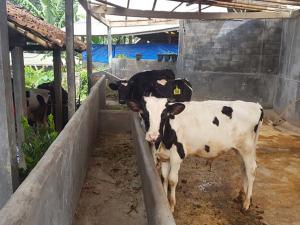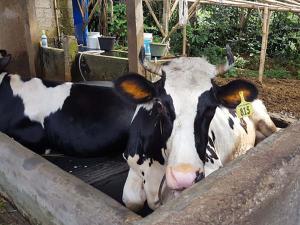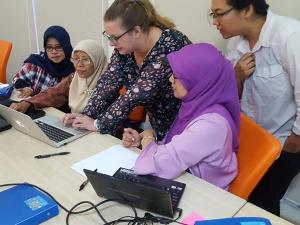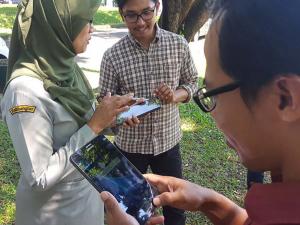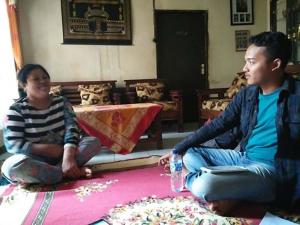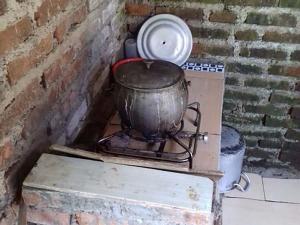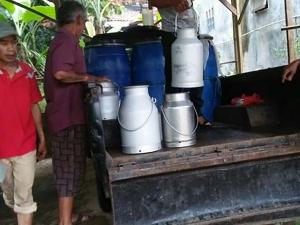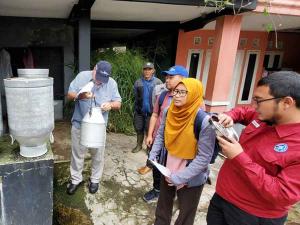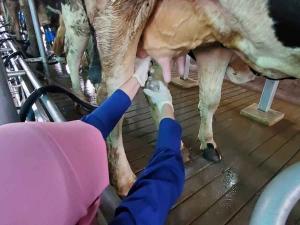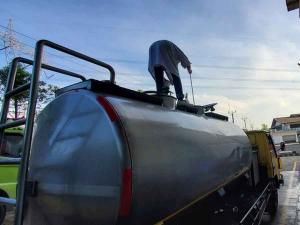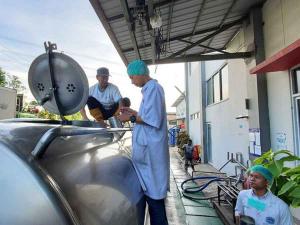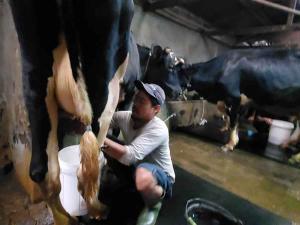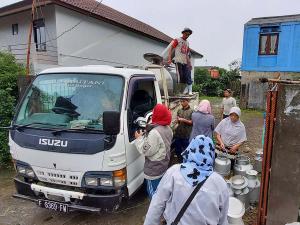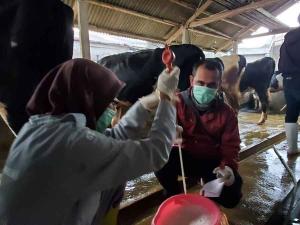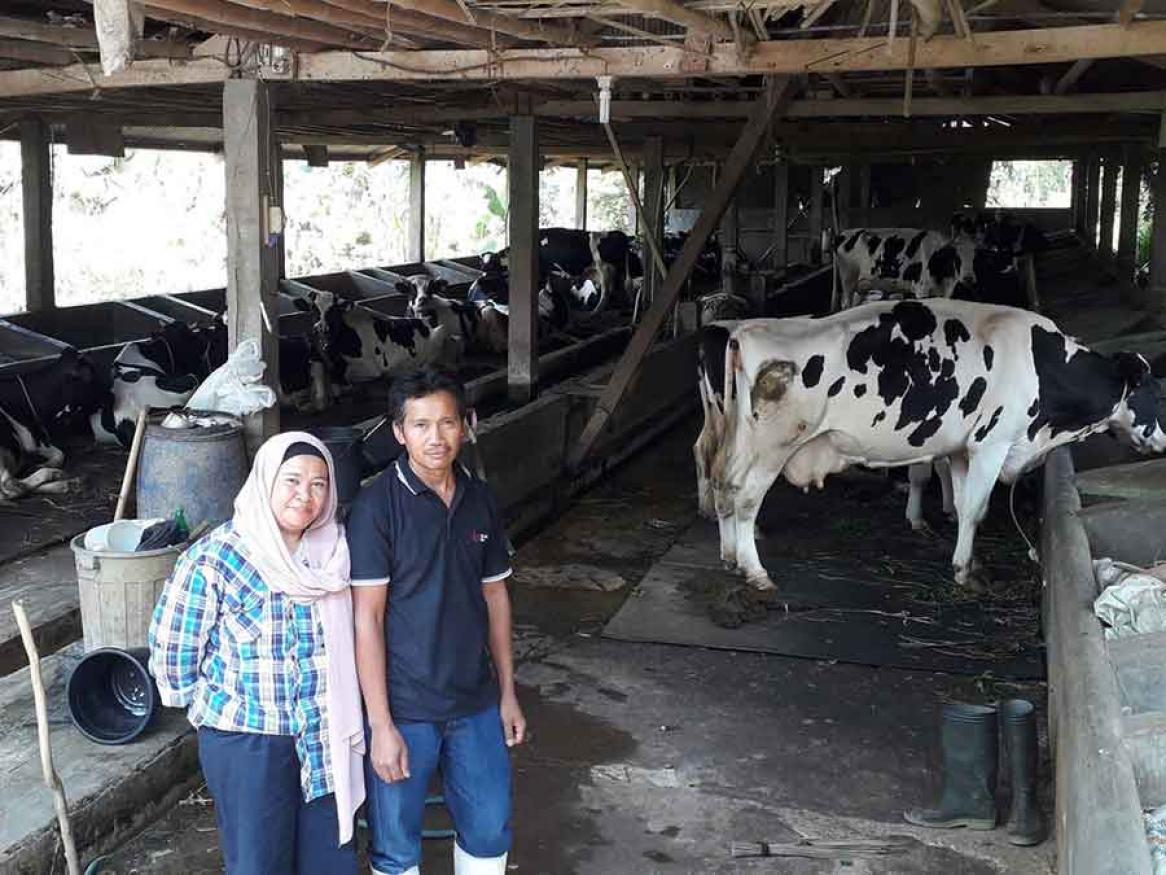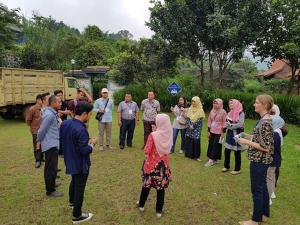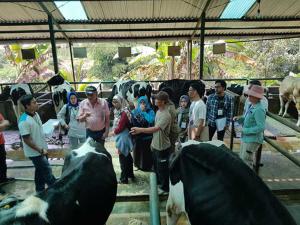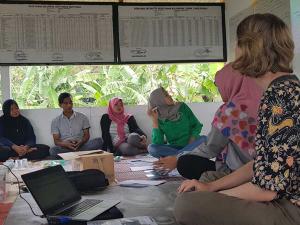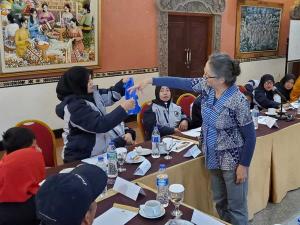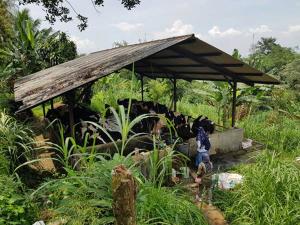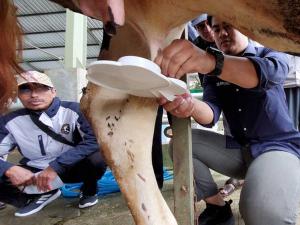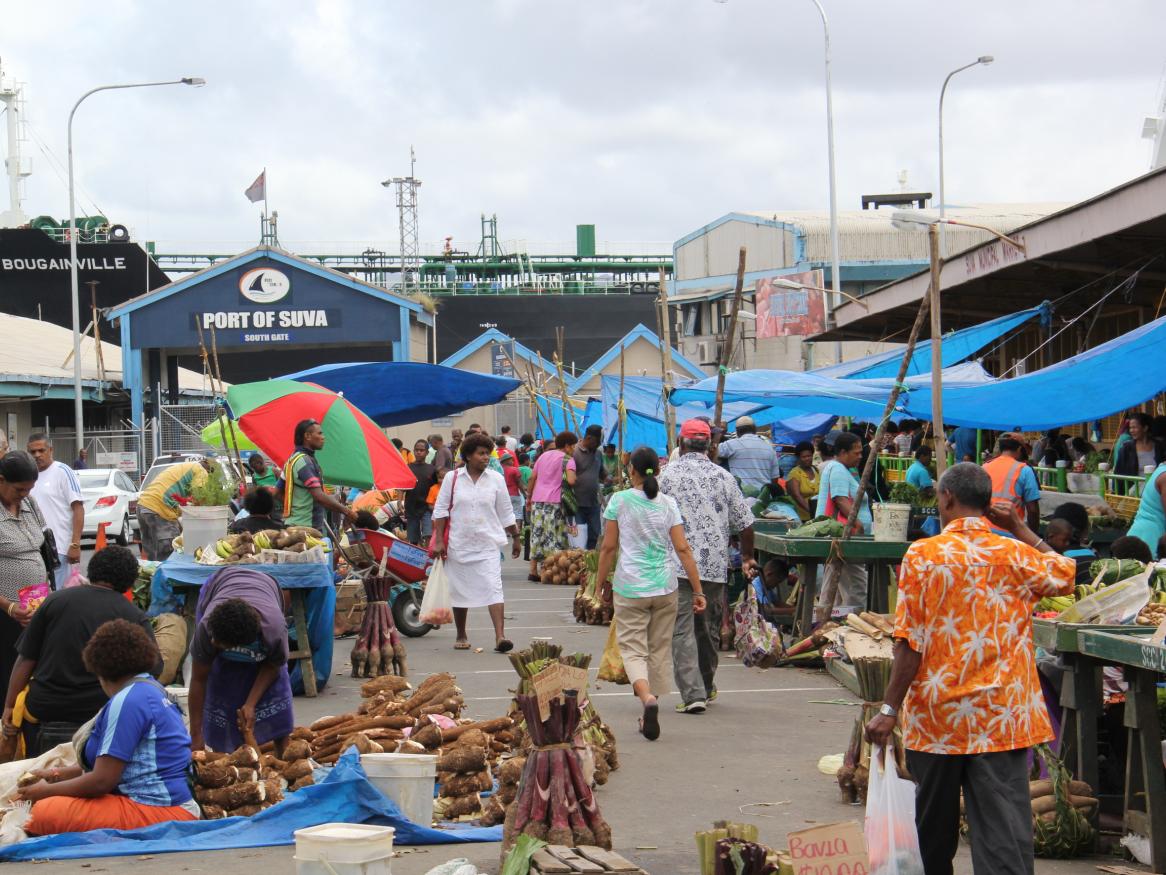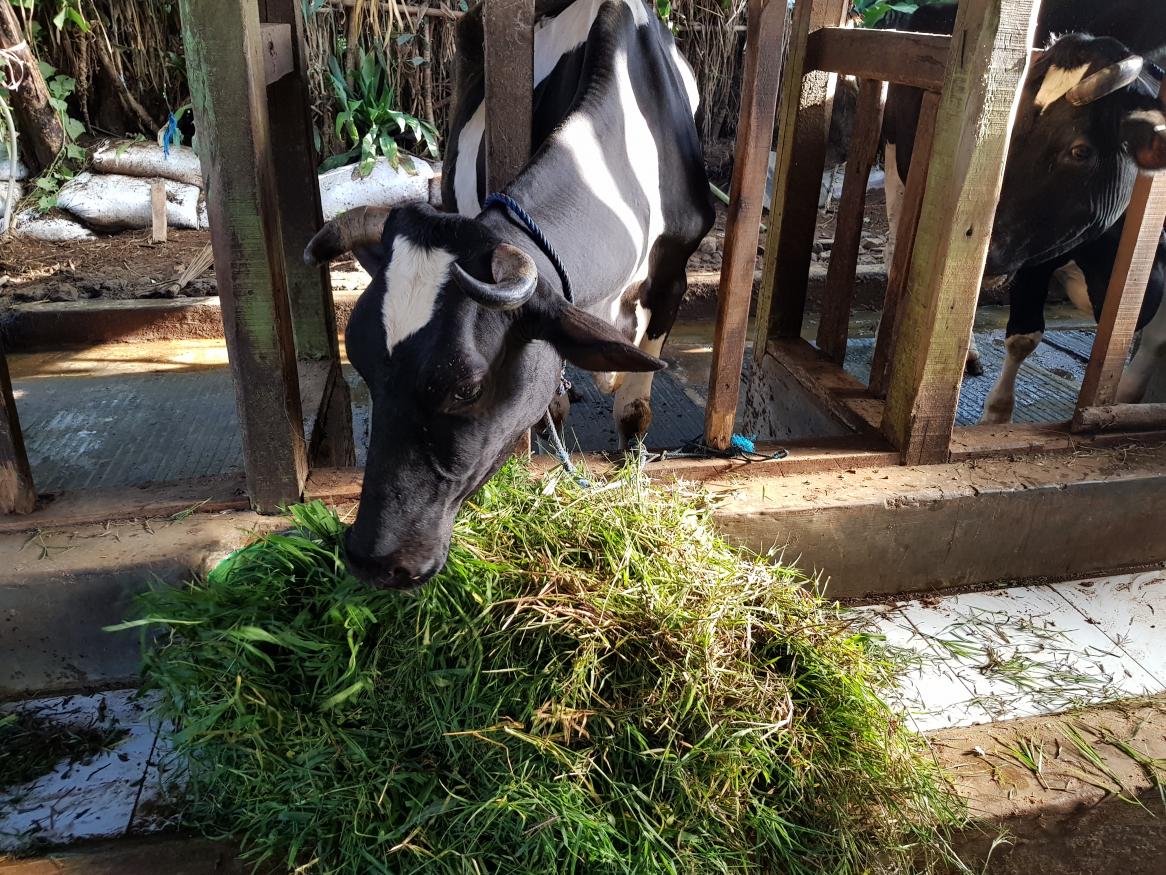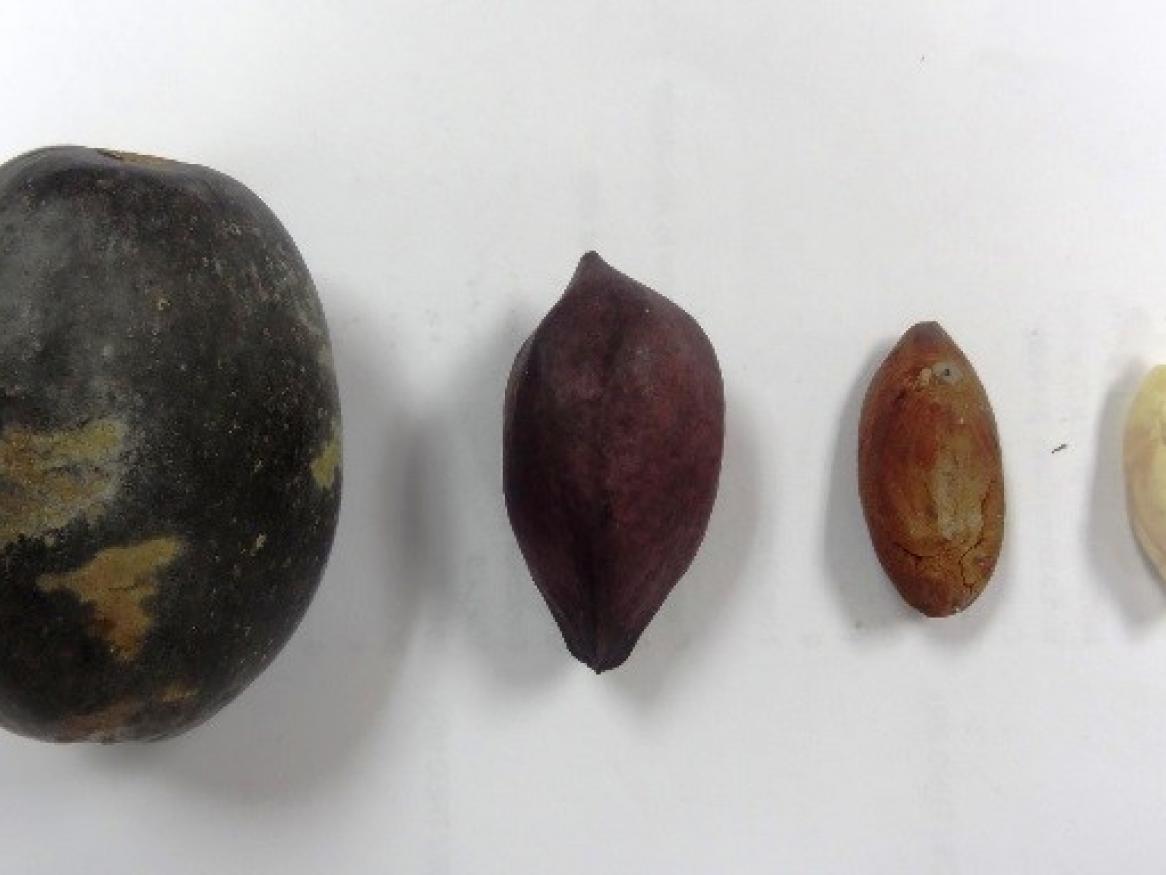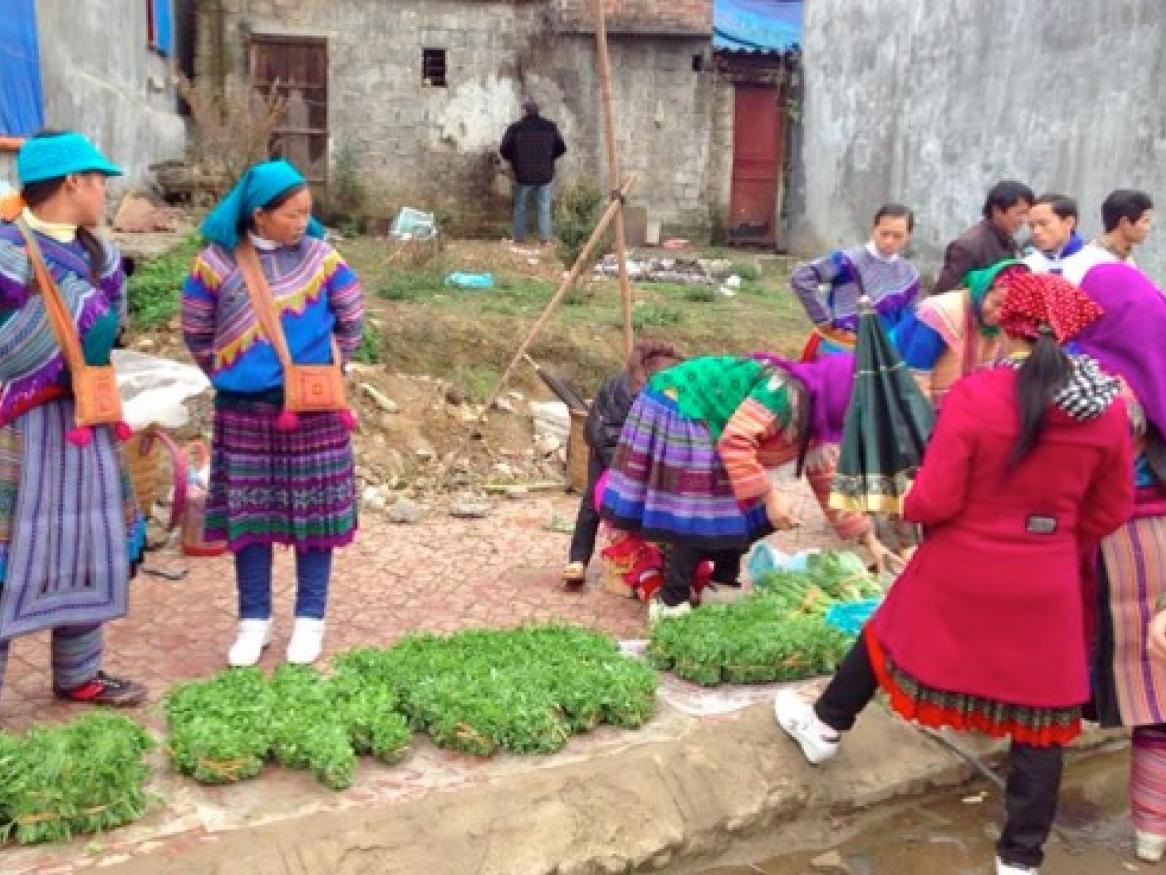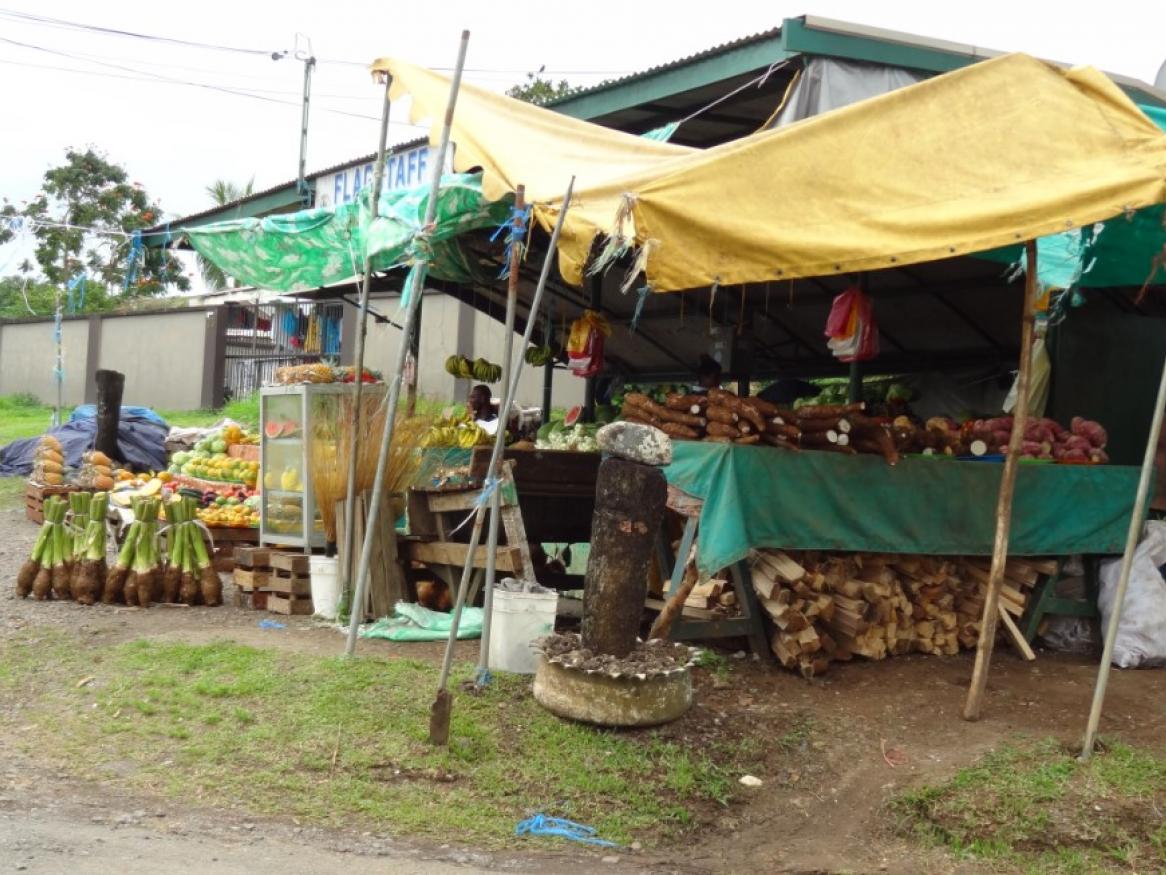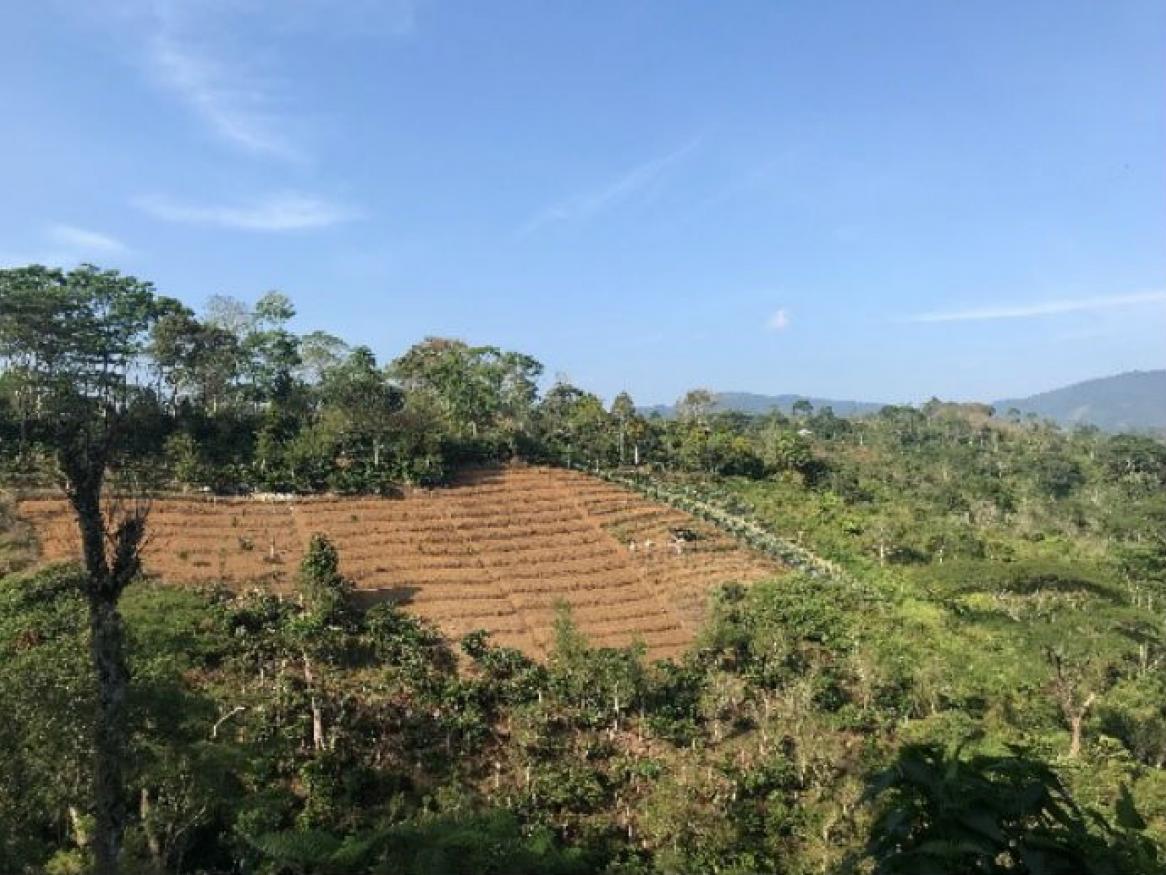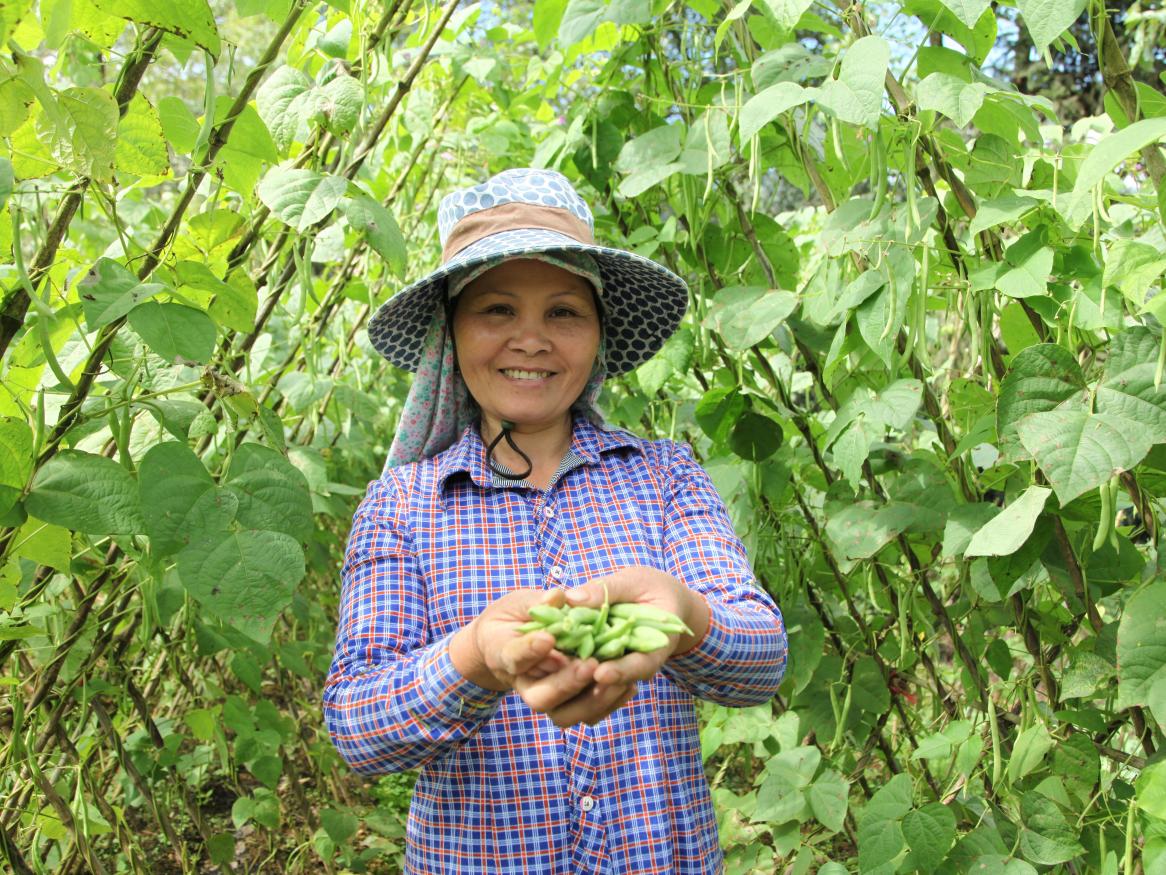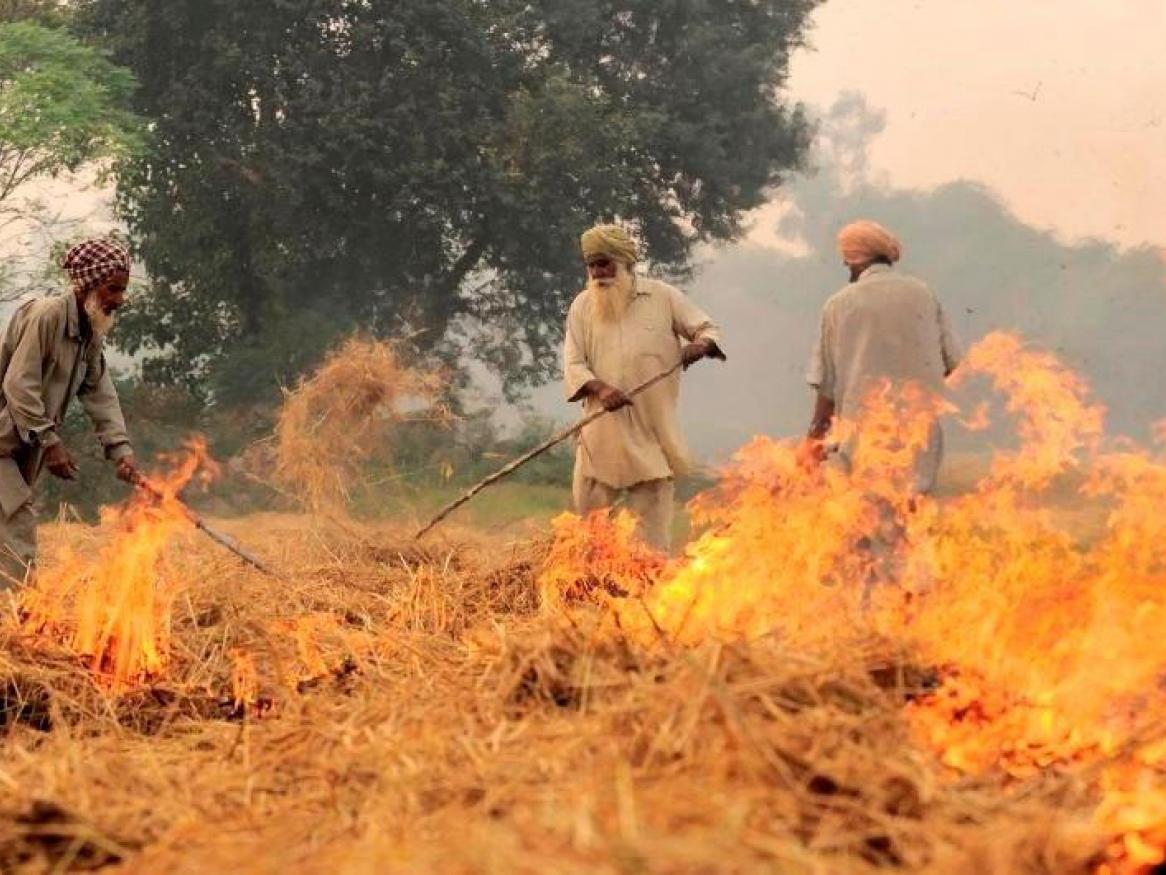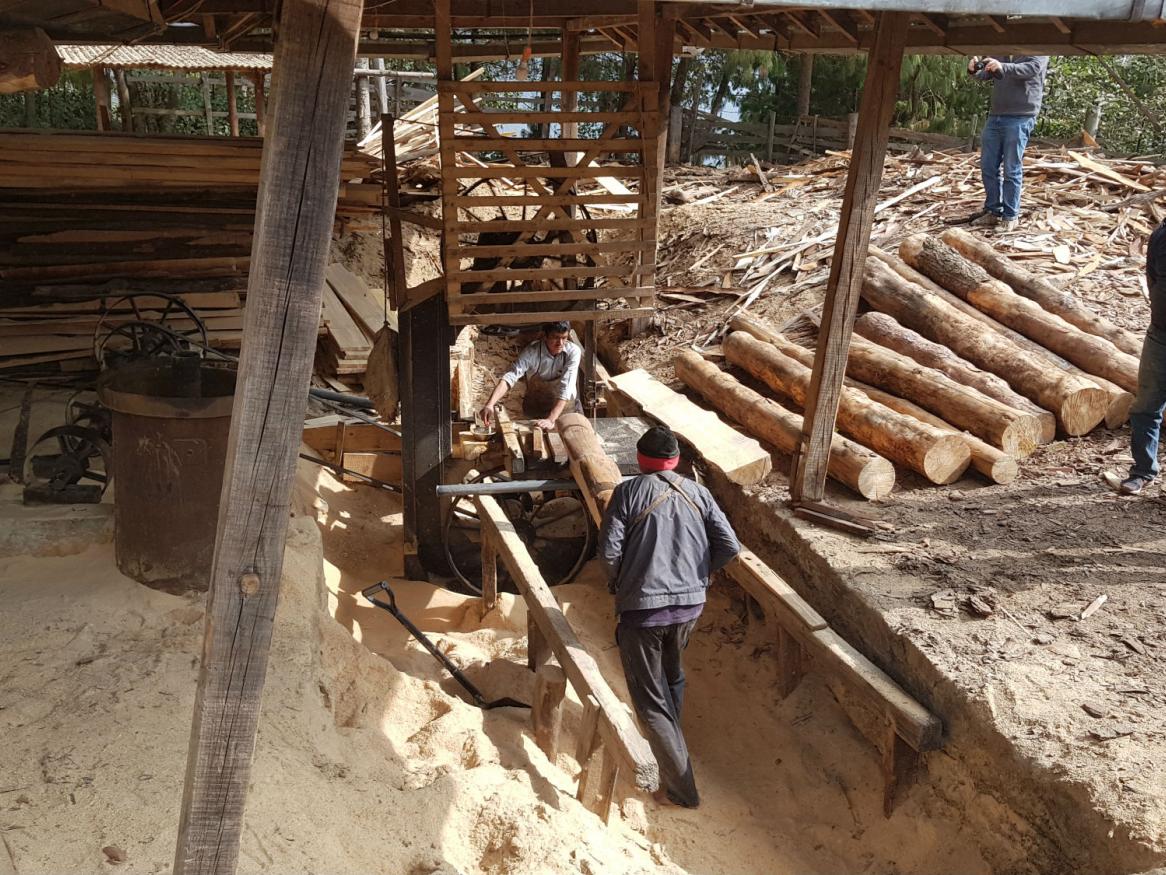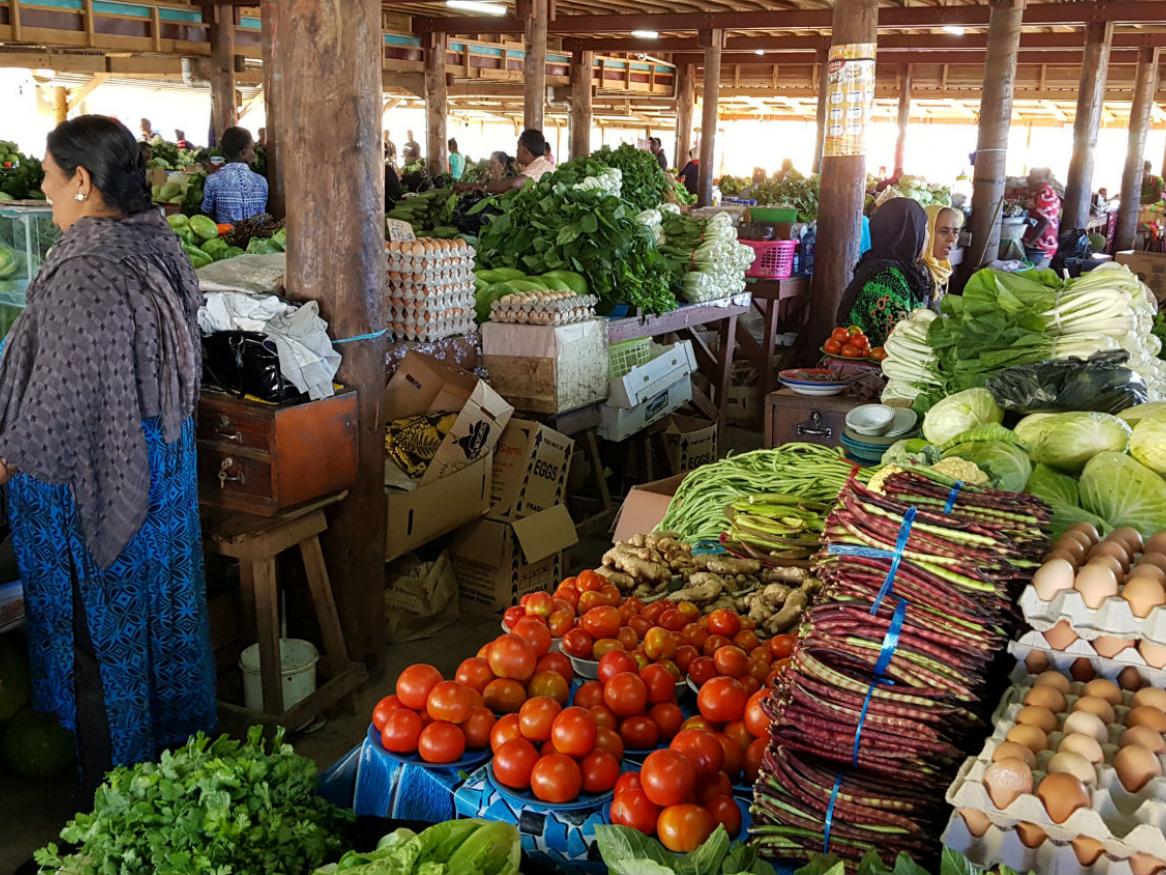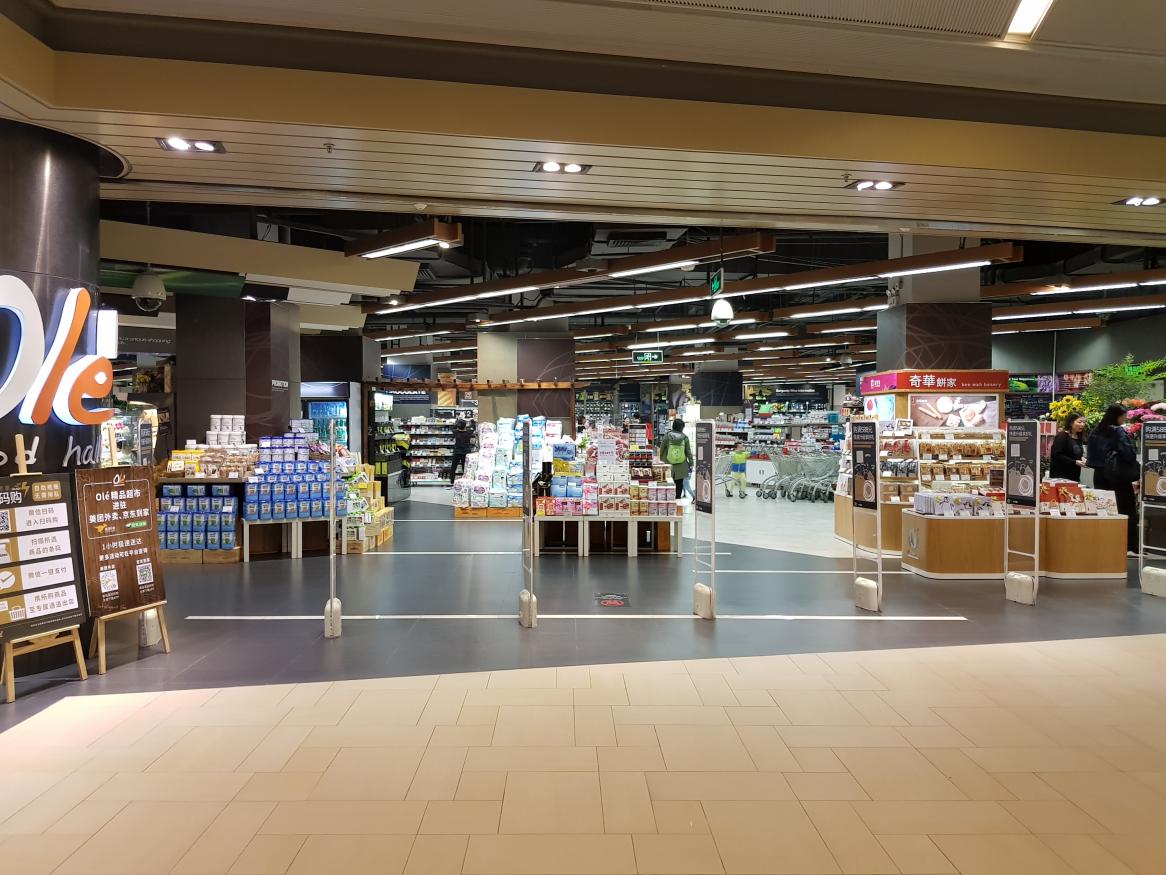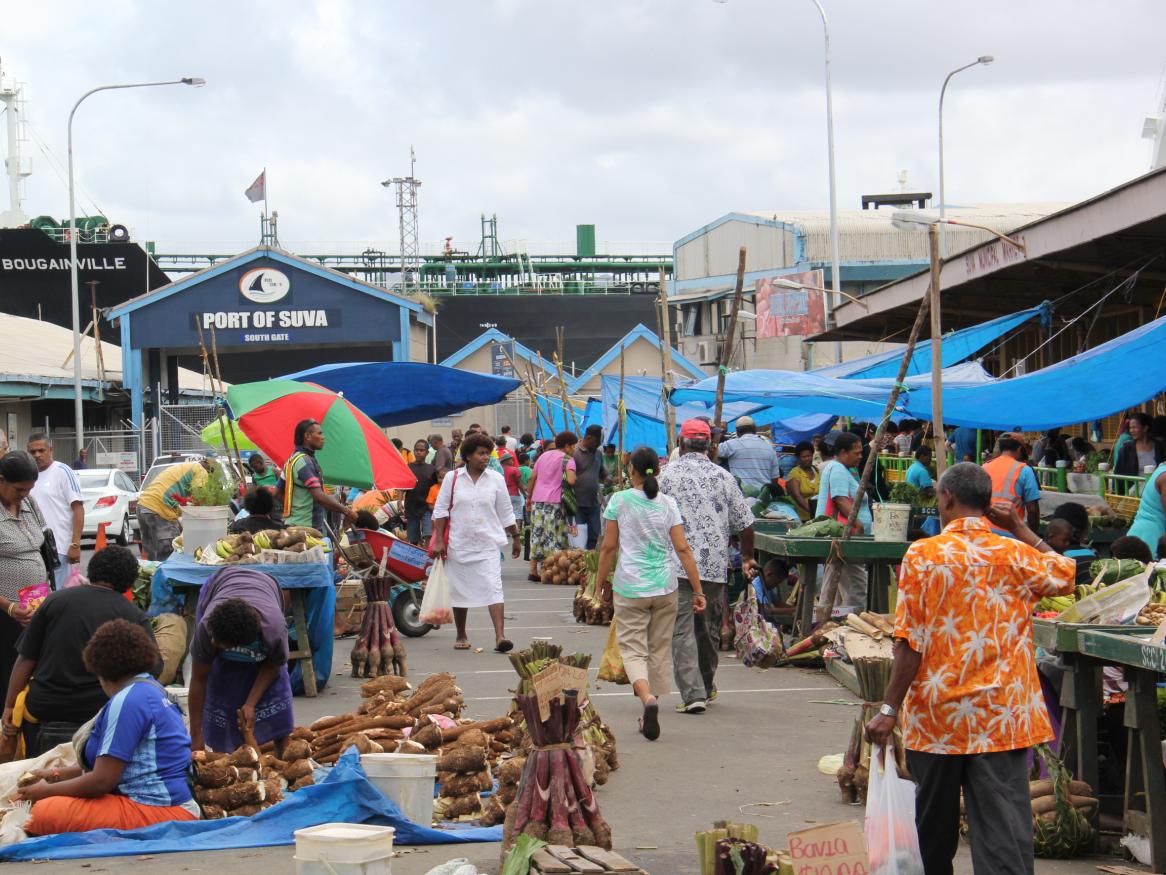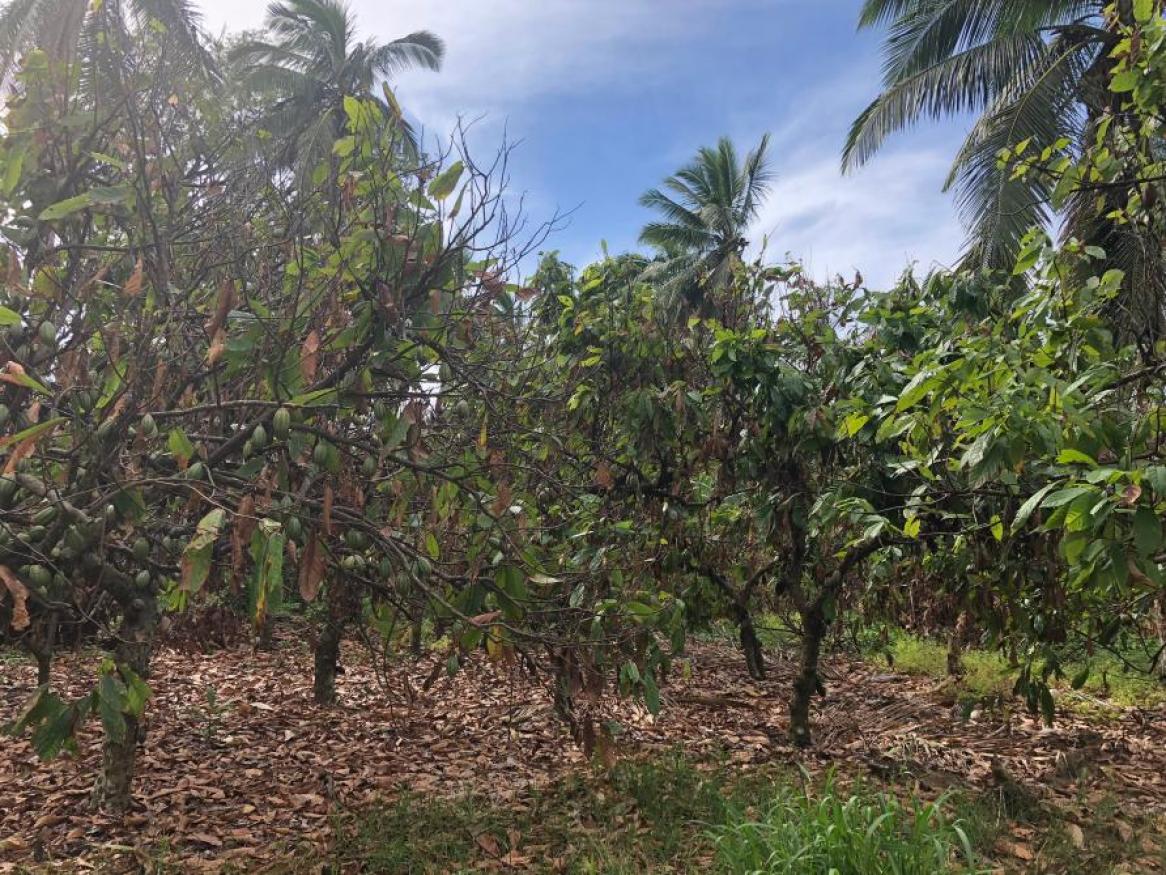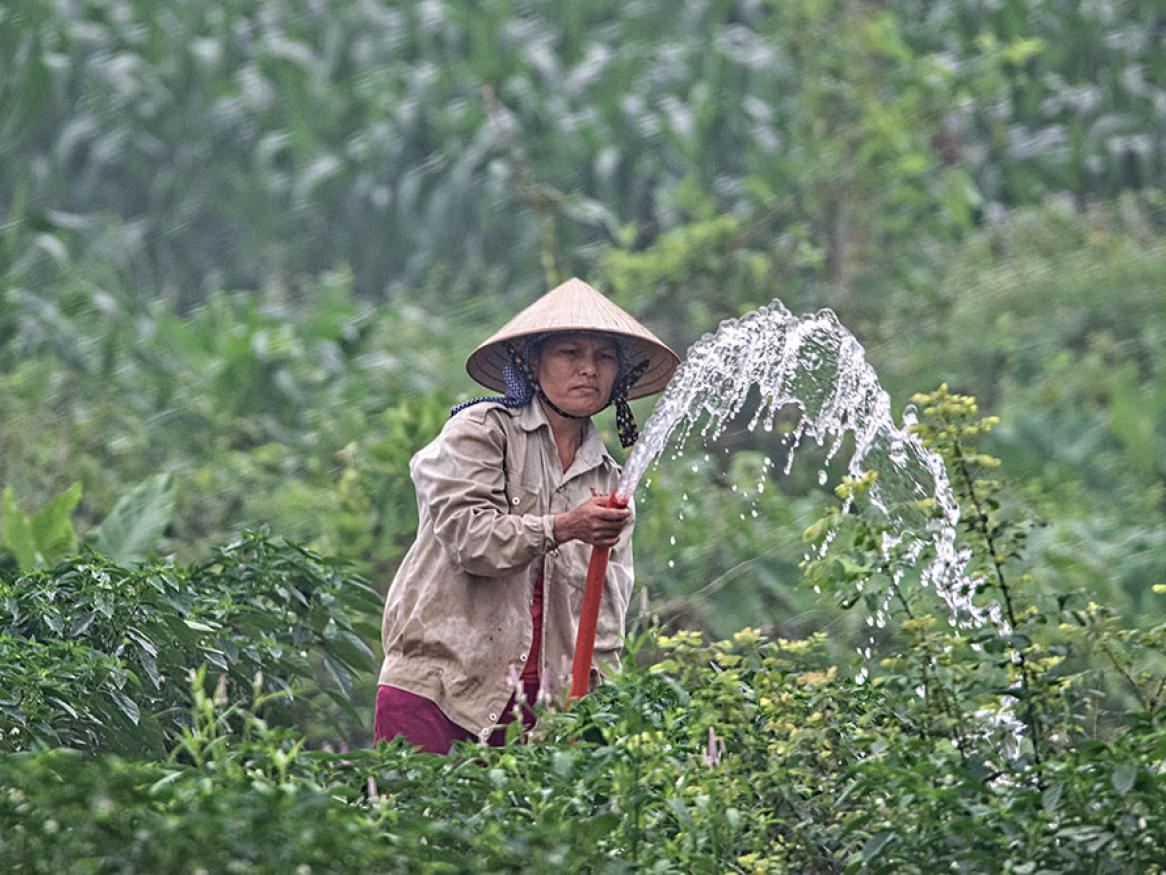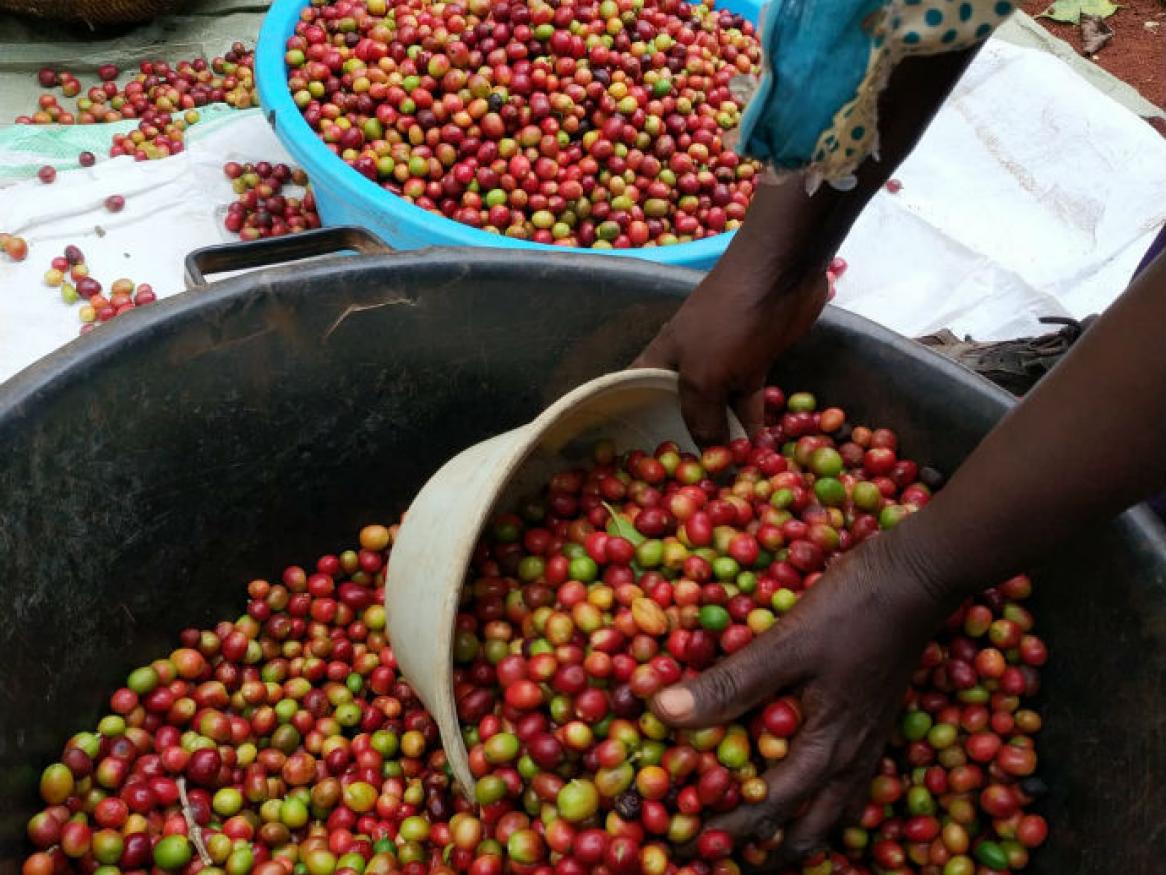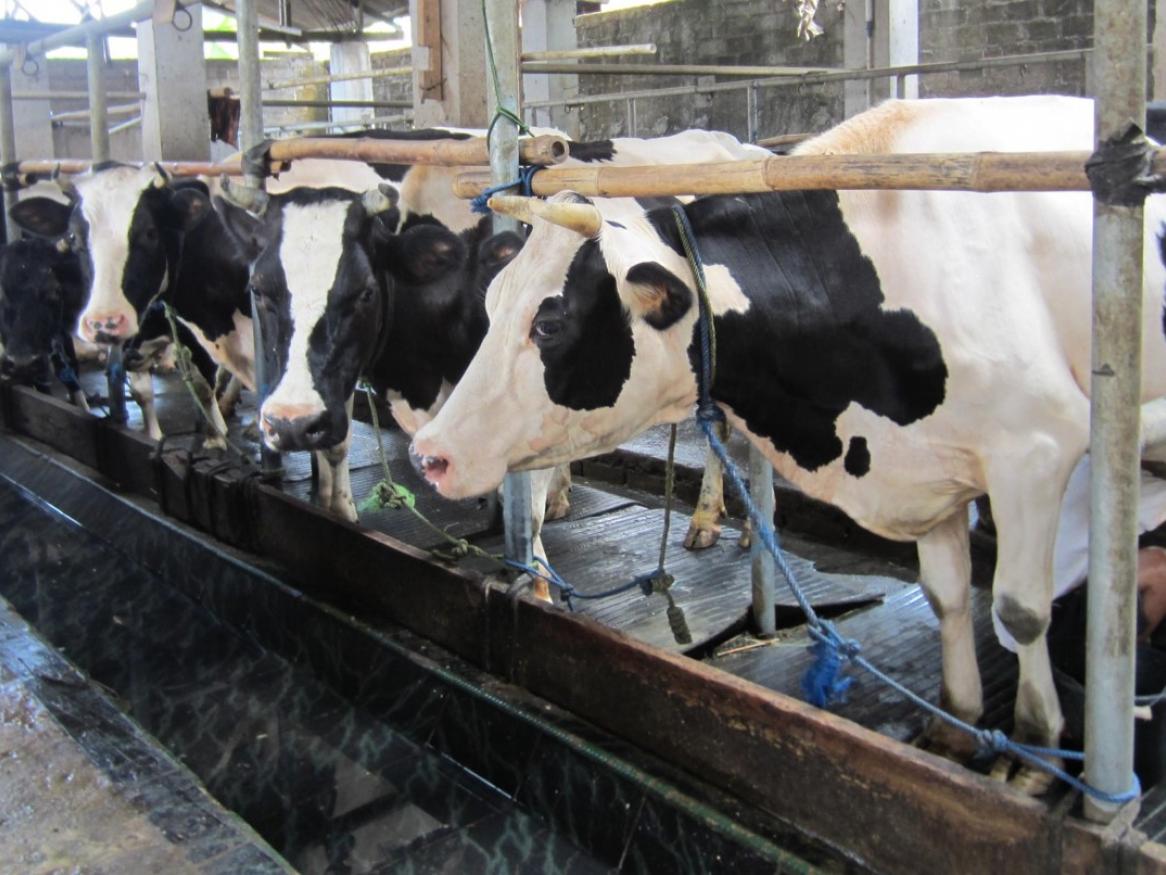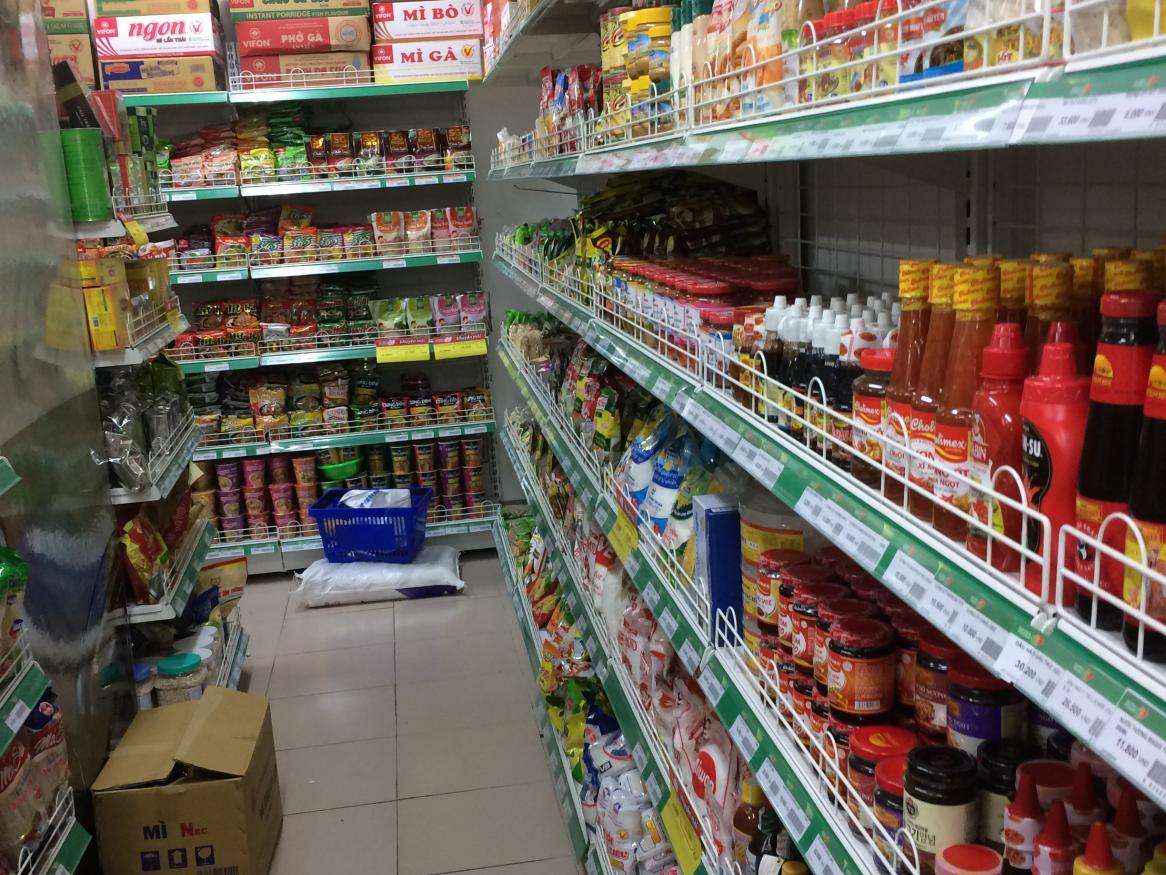IndoDairy
Improving milk supply, competitiveness and livelihoods in smallholder dairy chains in Indonesia.
Demand for milk in Indonesia is rapidly growing, with an 5% increase each year. However, domestic production accounts for less than 20% of milk consumed in Indonesia and the sector faces a multitude of constraints to improve quantity and quality of milk produced locally.
A whole-of-chain approach is needed to improve capacity and performance in the Indonesian dairy sector, which includes dairy farmers, traders, village level dairy cooperatives (‘koperasi unit desa’ – KUDs), processors, retailers and consumers. Additionally, it is important to consider external factors affecting the dairy sector, (e.g. incentive schemes, programs, policies, global markets).
The Government of Indonesia (GoI) is investing substantial resources into the nation’s dairy sector, aiming to increase domestic production. The high priority the Indonesian government has placed on the dairy industry aligns closely with the research priorities of the Australian Centre for International Agricultural Research (ACIAR), including strengthening livestock management and marketing systems in Indonesia as well as improving smallholder access and competitiveness in rapidly transforming markets.
In June 2016, ACIAR and GoI approved the research project titled ‘AGB/2012/099: Improving milk supply, competitiveness and livelihoods in smallholder dairy chains in Indonesia’, also known as IndoDairy.
Objectives
- Identify and recommend strategies and policies to support development of sustainable, profitable and smallholder-inclusive dairy supply chains in North Sumatra and West Java
- Identify barriers to adoption of profitable management practices and farm business models and develop strategies to inform development of extension programs in West Java and North Sumatra
- Develop, pilot and evaluate best-bet dissemination to improve adoption of innovative dairy management practices by smallholder farmers in West Java.
Collaborators
Funding
Commissioned organisation
Collaborator institutions
Project activities
-
IndoDairy Smallholder Household Survey (ISHS)

During August and September 2017, a baseline household survey of 600 dairy farming households was conducted in West Java, Indonesia.
This survey was called the IndoDairy Smallholder Household Survey (ISHS) and is the primary focus of Objective 2 of the IndoDairy project: ‘Identify barriers to adoption of profitable management practices and develop strategies to inform development of extension programs in West Java and North Sumatra’.
This activity was led by the University of Adelaide, and the Indonesian Center for Agricultural Socio Economic Policy Studies (ICASEPS). A team of experienced enumerators carried out the survey using the digital data collection application called ‘CommCare’.
Five dairy co-operatives (KUD) in West Java were identified to collaborate with and a purposive proportional random sampling method was used to select 600 dairy households
After extensive interviews with key stakeholders in the dairy sector, including national and local government, universities, milk processing companies, and dairy co-operatives, the ISHS was designed to collect a wide range of useful information from dairy farming households. The information allows the research team (and interested stakeholders) to understand the current socio-demographic and farm characteristics of dairy farming households in West Java as well as issues affecting and limiting smallholder profitability and opportunities to improve smallholder livelihoods.
Survey themes
The survey covered more than 20 themes, including the following:
- Household characteristics of dairy farmers
- Information on livestock and land assets
- Individual animal information
- Management of dairy farm animals
- Access to credit
- Information on inputs and labour
- Costs and expenses of managing dairy farm operations
- Information on household income
- Information on milk production
- Sales and marketing information
- Information on adoption of dairy farming technologies
- Group membership of dairy farmers
- Farmers’ attitudes and perceptions
- Information on role of women by using the ‘Women’s Empowerment in Agriculture Index’ (WEAI)
- Information on household food security by using the ‘Household Food Insecurity Access Scale’ (HFIAS)
-
Value chains

The IndoDairy project aims to provide information on programs, policies and innovative institutions that can help smallholder farmers, without sacrificing the efficiency and competitiveness of the dairy supply chains. Therefore, a whole-of-chain approach is required. This includes investigating market and supply chain investment opportunities that are most likely to lead to the development of new and sustainable smallholder dairy supply chains in North Sumatra and improve the functioning of dairy supply chains in West Java.

Value chain analysis
The project examined dairy supply chains in West Java and North Sumatra, which included farmers, cooperatives, processors and retailers. Semi-structured interview were conducted to gather both qualitative and quantitative data. This information is being used both to assess issues and opportunities in the provinces.
A set of case studies outlining the success factors in developing existing partnerships between processors and smallholder dairy producers or cooperatives will also be conducted (e.g. for example Cimory in West Java).
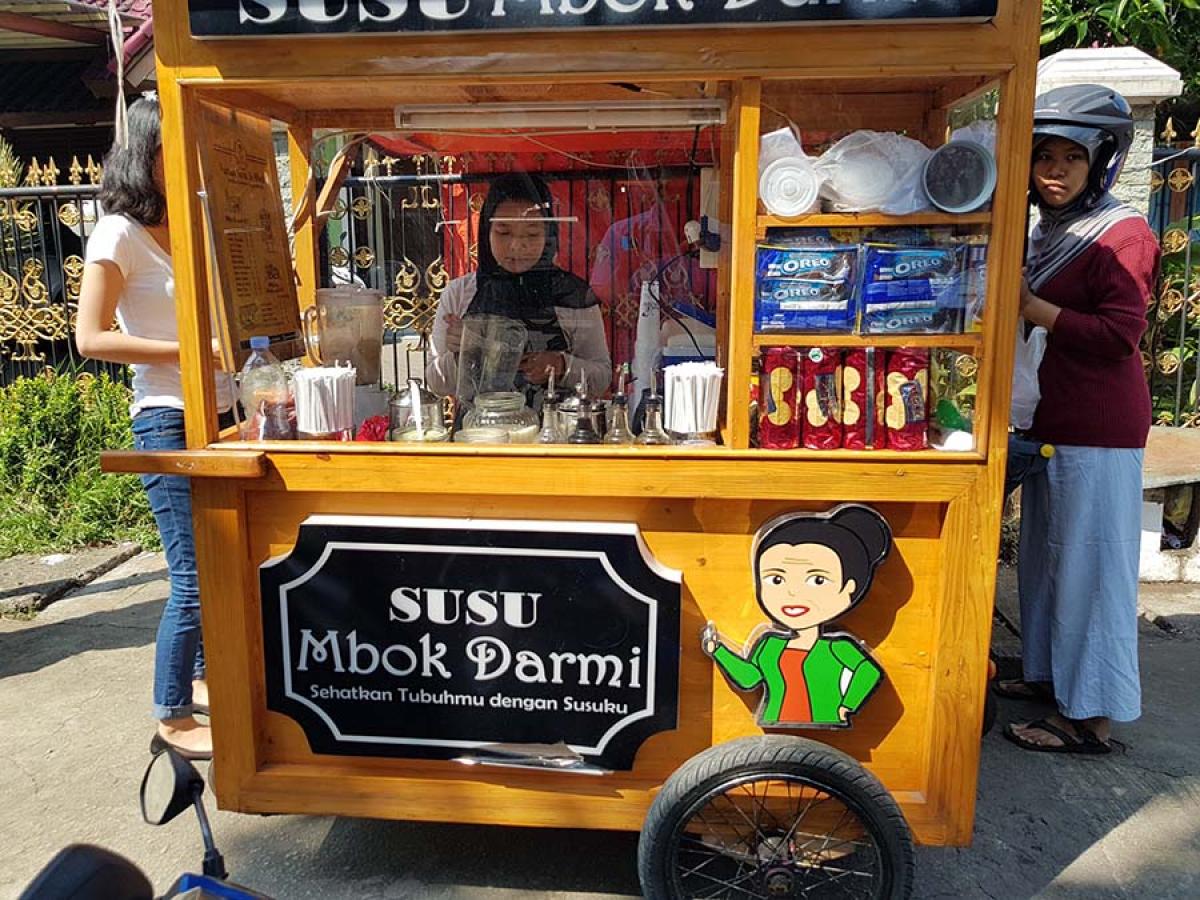
Inclusive business models
Inclusive business principles in the agricultural sector provide smallholder farmers access to information, improved inputs and technology, land, better markets, and shortens the longer chains of intermediaries. Using these principles, the IndoDairy project evaluated a series of examples dairy chains in West Java and East Java.
This analysis identified successful relationships between these players, and the reasons for success and how these can be built upon. These key drivers are framing the analysis of key opportunities and barriers for expansion and scaling of the models.

Trialing ‘Whole-of-Chain’ approaches to impact milk quality
Using the findings from the value chain analysis and inclusive business models principles, the IndoDairy project is piloting a ‘Whole-of-Chain’ approach to improve the milk supply from smallholder farmers in West Java.
With milk quality, in particular microbial contamination, being a significant issue facing the Indonesian dairy sector the project will focus on working with stakeholders throughout the chain to improve total plate counts (TPC).
The project team will first identify the critical control points along the chain where microbial levels increased most to identify the relative contributors to TPC. This will be followed by an incentive-based study, which will measure the change in farmer behaviour and TPC levels when individual farmers are paid on their milk’s quality.
-
Policy
Reviewing policies and engagement with policy makers and industry stakeholders is important aspects of this project.
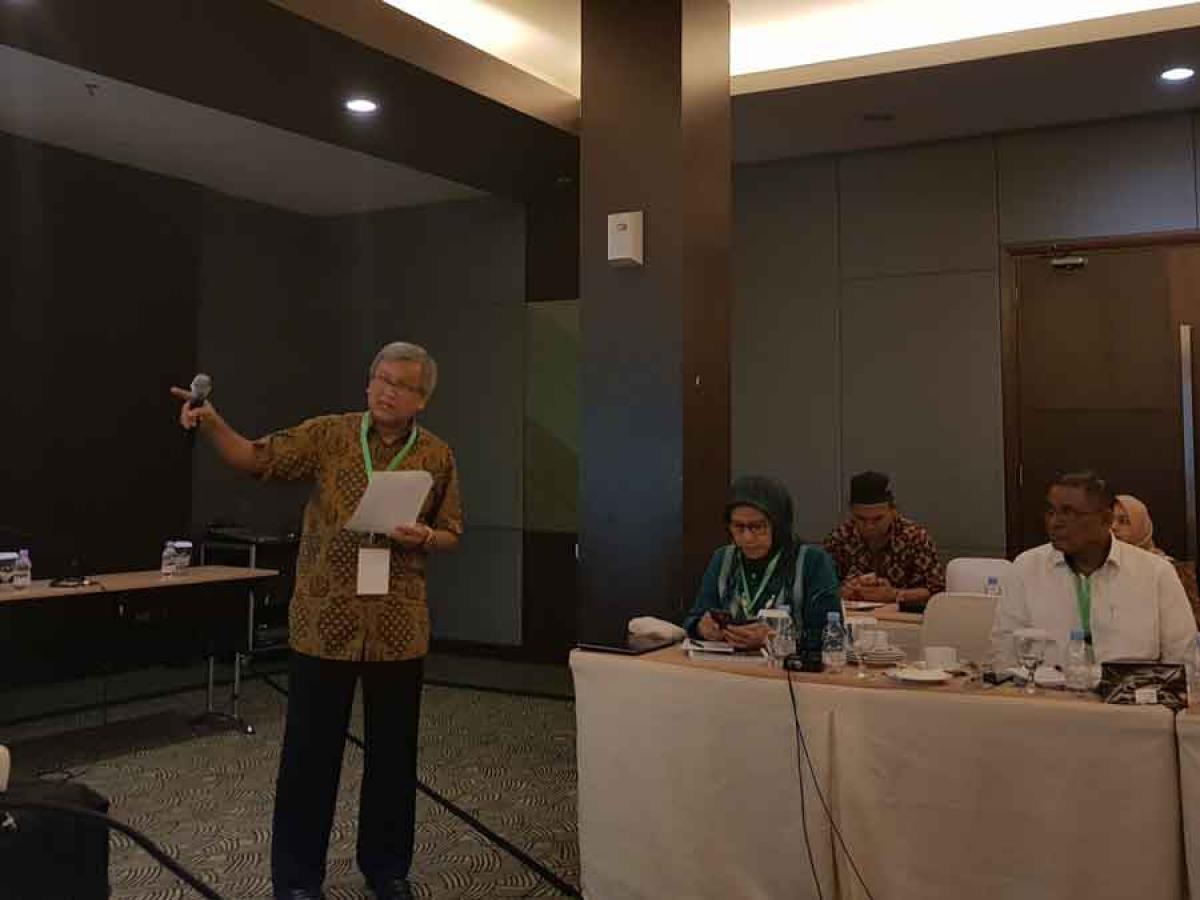
Policy review
This activity provides a better understanding of regulatory framework affecting dairy supply chains at different levels, the degree of competition in the dairy industry, contractual relationships between agents along the value chains and areas where inefficiencies occur. The improved understanding will contribute to more informed policies and programs that will better engage stakeholders.
Policy dialogue

The IndoDairy project is actively engaging with policy makers and industry to work towards a more effective and inclusive dairy sector in Indonesia. Multiple policy forums and roundtable discussions have been hosted by the project.
Key stakeholders include representatives from the Coordinating Ministry for Economic Affairs, Ministry for Agriculture, Directorate General of Livestock and Animal Health Services, Ministry for Industry, Ministry for Cooperatives and Small to Medium Enterprises, Indonesian Dairy Farmers Association. Additionally, the project has engaged with industry forums, such as the Indo Livestock Expo to present the findings from the IndoDairy project.
Find out more about each event here:
-
Dairy extension
The extension activities of the IndoDairy project aim to improve the adoption of innovative dairy management practices of smallholder farmers in West Java.
These practices include areas of feeding management and nutrition, animal husbandry and reproduction, milk quality and business management. A number of methods, including development of resources, training workshops, farmer discussion groups and Focus Farms, were established to deliver extension across the topic areas in West Java.
Development of technical resources
A number of resources have been developed and made available to farmers and farm advisors to support field level activities and training. Valuable resources include the IndoDairy Farming Factsheets, posters and newsletters.
Service provider training

Service provider training was organised over a 12 month period to build capacity of advisors and milk cooperative staff in the regions. A group of approximately 20 advisors were trained intensively in the topic areas of feed management and nutrition, animal reproduction and calf rearing, milk quality and business management. An additional training workshop was provided in extension and facilitation techniques to the core group of service providers, enabling them to effectively to delivery the technical content.
This training has helped farm advisors to better deliver support to farmers through extension activities in the five field sites in West Java.
Additionally, an intensive week-long training was also delivered to 20 service providers in North Sumatra addressing the four technical areas.
Discussion groups

Discussion groups were established across the five regions involving a total of 186 farmers with 10 to 15 participating farmers in each group. This also included a women’s discussion group in Cijeruk, Bogor.
Each farmer group had a planning session to choose six technical topics of most interest to discuss during meetings over 12 months supported by the local village level researcher (facilitator) and extension staff. There was a final review session to evaluate and provide feedback for each of the groups.
Hear from some of the farmers participating in the discussion groups in a short video, titled “Voices from the Field”.
Focus farmers
Focus Farms were piloted as an extension activity in West Java. A Focus Farm is an example of a real life farmer who has specific goals and aspirations to improve the production and profitability of their farm. Over 12 months the Focus Farmer is supported by a group of advisors and farmers during regular meetings.
The goals of the farmer are prioritised and activities are trialed or discussed throughout the meetings with the support of the facilitator.
Two focus farms were established in Cijeruk, Bogor. Find out more about Pak Ma’mur and Pak Yunus and their journeys.
-
Capacity building
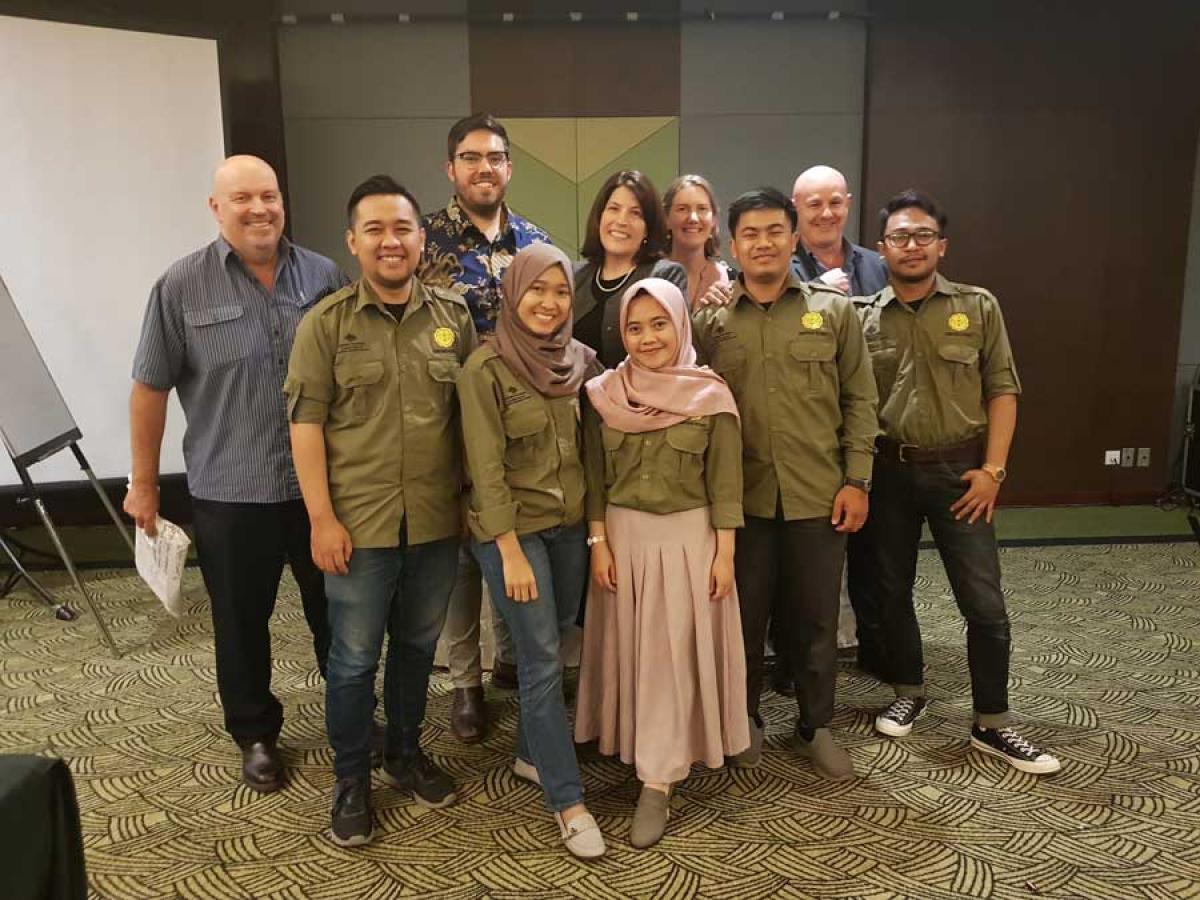
Capacity Building is cross-cutting theme in the IndoDairy project. This includes development skills and capabilities of farmers, dairy cooperatives staff, researchers, students and policy makers.
- As part of the dairy extension activities, the IndoDairy project delivered an integrated training program to service providers and farm advisors in the technical areas relating to dairy managements.
- Farmers in the extension activities = 186 across 5 cooperatives
- 5 VLRs and 2 Researchers from IAARD agencies travelled to Australia
- CommCare training for key Institutions ICASEPS, ICARD and IPB, streamlining data collection methods.
- Ongoing training and mentoring of researchers in survey design and research methods
- Research papers and conference presentations, undegraduate and postgraduate students.
- The recruitment of 5 Village Level Researchers (VLRs); recent graduates from Animal Science, Padjajaran University, Bandung
-
End of project review (EOPR)
Despite challenges due to COVID-19 global pandemic since March 2020, the project team was able to complete the remaining activities. End of Project Review (EOPR) was conducted in March-April 2022 to reflect on the key achievements and lessons learnt from the project.
The EOPR was conducted online via Zoom. The power point slides and pre-recorded presentations prepared by the project team members are available below.
1 Challenges along Indonesia’s dairy value chain Slide presentation Pre-recorded presentation 2 Indonesia’s dairy policy environment update: Dairy inputs, investment and access to credit for key players in the dairy industry Slide presentation Pre-recorded presentation 3 Indonesia’s dairy policy environment update: Milk price and importation regulation of dairy products and cattle Slide presentation Pre-recorded presentation 4 The dynamic of ISHS samples: A comparison of 2017 baseline survey vs 2021 end-line survey Slide presentation Pre-recorded presentation 5 Understanding Indonesia’s smallholder dairy farmers: Facts from the household surveys Slide presentation Pre-recorded presentation 6 Smallholder farmers’ multilevel challenges to adopt improved dairy technologies and practices Slide presentation Pre-recorded presentation 7 Hazard analysis and critical control points (HACCP) study - on-farm and at the dairy cooperative Slide presentation Pre-recorded presentation 8 Results and lessons from the HACCP and price incentive study Slide presentation Pre-recorded presentation 9 Improved dairy feed technologies to increase smallholder farmers milk production Slide presentation Pre-recorded presentation 10 Participatory extension approaches: Increased adoption of technologies Slide presentation Pre-recorded presentation 11 Changes in technology adoption after project intervention Slide presentation Pre-recorded presentation 12 Issues, trends, and opportunities in tropical dairy farming Slide presentation Pre-recorded presentation 13 Voices from the field, passionate about supporting dairy farmers Slide presentation Pre-recorded presentation 14 Book launching - The voice of youth: The future of dairy industry in Indonesia Pre-recorded presentation 15 Reflection from students involved in IndoDairy project Pre-recorded presentation
Resources
-
Policy review
This report discusses several regulations issued by the Government of Indonesia (GoI) related to (1) Dairy Inputs, (2) Price of Domestic and Imported Dairy Products, (3) Investments in the Domestic Industry, (4) Access to Credit, (5) Importation Regulation of Live Dairy Cattle, and (6) Importation of Dairy Products.
Last updated – 5 April 2022.
-
Focus farm handbook
The IndoDairy piloted innovative extension approaches in West Java. One of the approaches trialled is called a ‘Focus Farm’.
This handbook outlines the stages of establishing a Focus Farm based on the approach used in the IndoDairy project in Tajurhalang Village, Cijeruk District, Bogor Regency, West Java in 2019. The handbook is aimed at supporting extension staff and service providers to establish a Focus Farm in any agricultural industry.
Last updated - 17 December 2020.
How to establish a focus farm (English) How to establish a focus farm (Indonesian)
-
IndoDairy Smallholder Household Survey (ISHS) 'Farm-to-Fact' series
To better understand the state of dairy farming in West Java, the IndoDairy project surveyed 600 dairy households in West Java between August and September 2017, called the IndoDairy Smallholder Household Survey (ISHS).
Information collected and presented in the ISHS Factsheet series provides a broad overview of many aspects of dairy smallholders in West Java, Indonesia. This insight is helping the research team to better understand issues faced by the households, including barriers to adoption of technology and profitable management practices. The information is helping to identify opportunities to improve adoption rates and address issues with dairy production and management.
In these factsheets, comparisons are made, firstly, between districts (Bogor, Cianjur, Bandung and Garut), then secondly, by profit quartiles.
Last updated - 4 May 2020.
Complete set of factsheets
Complete set of factsheets (English) Complete set of factsheets (Indonesian)
Individual factsheets
Background information 1. Introduction to the “IndoDairy” Project & The IndoDairy Smallholder Household Survey
English Indonesian 2. IndoDairy Smallholder Household Survey Sampling Design and Survey Roll-out English Indonesian Overview and comparisons by districts 3. Overview of Household and Farm Characteristics English Indonesian 4. Overview of Individual Cow Characteristics and Farm Management Practices English Indonesian 5. Dairy Farm Inputs English Indonesian 6. Dairy Farm Labour English Indonesian 7. Milk Productivity, Price and Quality English Indonesian 8. Costs, Revenue and Profit English Indonesian 9. Technology Adoption English Indonesian 10. Farmers’ Attitudes, Perceptions of Change and Future Aspirations English Indonesian 11. Gender Inclusiveness in Decision Making English Indonesian 12. Gender Inclusiveness in Asset Ownership, Access to Credit and Group Membership English Indonesian Comparison based on profitability 13. Introduction to Profitability Comparison English Indonesian 13.1 Household and Farm Characteristics English Indonesian 13.2 Individual Cow Characteristics and Farm Management Practice English Indonesian 13.3 Dairy Farm Inputs English Indonesian 13.4 Dairy Farm Labour English Indonesian 13.5 Milk Productivity, Quality and Price English Indonesian 13.6 Technology Adoption English Indonesian 13.7 Farmers’ Attitudes, Perceptions of Change and Future Aspirations English Indonesian 13.8 Gender Inclusiveness English Indonesian -
Extension and training resources
To support extension activities delivered under the IndoDairy project, this series of technical factsheets and posters were developed to support the project team as well as extension officers and service providers in the following areas:
- Feed and nutrition: nutritional requirements of calves, weaned heifers, milking cows; production of high quality forages and silage making.
- Calf rearing and animal husbandry: calf health and rearing, breeding adult cows, animal heath, heat stress management, housing dairy stock and body condition scoring
- Milk quality and mastitis: mastitis and its prevention, and producing quality milk
- Farm business management: how to calculate profit
Last updated - 9 April 2020
'Essential farming facts' technical factsheets
- 'Essential Farming Facts' technical factsheets - English version
- 'Essential Farming Facts' technical factsheets - Indonesian version
Poster: milk quality and mastitis
- Poster: Milk Quality and Mastitis - English version
- Poster: Milk Quality and Mastitis - Indonesian version
Poster: feeding and nutrition
Poster: calf rearing and animal husbandry
- Poster: Calf Rearing and Animal Husbandry - English version
- Poster: Calf Rearing and Animal Husbandry - Indonesian version
Poster: farm business and recording
-
Heifer importation guidelines
Increasing the size of the Indonesian dairy herd is fundamental to increasing national milk supply from smallholder dairy farms. Increasing the number of heifers imported annually is one option to achieving this outcome.
This guideline (Version 2) covers several topics relating to:
- An overview of Indonesia’s dairy industry and the potential increase in productivity through increasing the size of the national dairy herd;
- Government of Indonesia policies relating to dairy development in Indonesia and heifer importation;
- Heifer importation processes and logistics;
- Critical success factors relating to heifer importation;
- Identification of potential sources and models of government, private and farmer investment to support heifer imports;
- Key breed attributes that will lead to greater heifer productivity and longevity in small holder systems;
- Opportunities to import heifers from other tropical and subtropical dairying regions, such as northern Australia.
Much of the information presented in these guidelines are the outcomes from a workshop held on 28 September 2017 in Bogor, West Java. These guidelines will be reviewed annually with the last edition being published in January 2020.
Last updated - 24 June 2020.
-
Review of extension approaches
Reviews of existing technical material and successful extension methods both in Indonesia and internationally were undertaken to help inform project design and pilot delivery.
Review of Extension Methodologies (used internationally)
The approach taken in the review was to explore and analyse a range information sources culminating in identification of best-bet extension methodologies for the project. The review commenced with analysis of extension methodologies to establish relevant frameworks, theory and principles, then explore technical focus, audience characteristics, value chain and delivery support, to enable a customised extension approach.
Last updated - 24 July 2018
Literature Review of Dairy Extension in Indonesia
A review was undertaken of dairy extension in Indonesia, including by government and university programmes. The primary focus of the review was on dairy extension materials. Other relevant extension material was also considered in the review (e.g. beef production).
Last updated - 11 October 2017
News and updates
Pacific Agribusiness Research for Development Initiative Phase 2 - PARDI 2
PARDI 2 is funded by the Australian Centre for International Agricultural Research (ACIAR) and has a geographical focus on Fiji, Vanuatu and Tonga (with extension to Kiribati, Samoa and Solomon Islands).
Read more about Pacific Agribusiness Research for Development Initiative Phase 2 - PARDI 2Philippines Smallholder Dairy: Landscape Analysis and Research Priorities
Developing the domestic dairy industry is seen as a priority for the Philippines Government. A request to the Australian Centre for International Agricultural Research (ACIAR) by the Philippines Council for Agriculture, Aquatic and Natural Resources Research and Development (PCAARRD) initiated the development of this Small Research Activity (SRA) proposal to undertake a scoping exercise and landscape analysis of the dairy industry.
Read more about Landscape Analysis and Research PrioritiesEnhancing private sector-led development of the canarium industry in PNG Phase 1
This project focuses on expanding markets and processing of canarium products by the private sector, linking with other TADEP Projects, and collaborating with government and non-government agencies.
Read more about Enhancing private sector-led development of the canarium industry in PNG Phase 1A strategic approach to pro-poor market and consumer research in China and the Mekong region
This research is now being conducted in a project "The Vietnam urban food consumption & expenditure study".
Read more about A strategic approach to pro-poor market and consumer research in China and the Mekong regionEnhancing value added products and environmental benefits from agroforestry systems in the Pacific
This project will explore opportunities for new value-added agroforestry products to improve livelihoods in PNG, Vanuatu, Fiji and the Solomon Islands.
Read more about Enhancing value added products and environmental benefits from agroforestry systems in the PacificAgricultural Policy Research to Support Natural Resource Management in Indonesia’s Upland Landscapes
This project’s research activities provide an understanding of how existing national and local policies (e.g., public investments, property rights, extension, fertiliser and water subsidies, trade policies, and taxes) influence farm household decisions that result in these environmental externalities.
Read more about Agricultural Policy Research to Support Natural Resource Management in Indonesia’s Upland LandscapesTowards more profitable and sustainable vegetable systems in north west Vietnam
The overall objective of this project is to enhance the profitability and sustainability of smallholder vegetable farmers in north western Vietnam through improved market engagement and integrated resource and farm management practices.
Read more about Towards more profitable and sustainable vegetable systems in north west VietnamValue chain and policy interventions to accelerate zero-till adoption across the Indo-Gangetic Plains
This project is aimed at accelerating the adoption of ZT seed drills (including the Australian-Indian designed Happy Seeder) to reduce crop residue burning and boost sustainable food energy water security across the Gangetic Plains of northern India.
Read more about Value chain and policy interventions to accelerate zero-till adoption across the Indo-Gangetic PlainsEnhancing livelihoods from improved forest management in Nepal
This project builds on the success and lessons of the 5-y project FST/2011/076, Enhancing livelihoods and food security from agroforestry and community forestry in Nepal, also known as the EnLiFT project.
Read more about Enhancing livelihoods from improved forest management in NepalIncreasing irrigation water productivity in Mozambique, Tanzania and Zimbabwe through on-farm monitoring, adaptive management and Agricultural Innovation Platforms
This project is about increasing irrigation water productivity and changing farmer behaviour in three south-eastern African countries.
Read more about Increasing irrigation water productivity in Mozambique, Tanzania and Zimbabwe through on-farm monitoring, adaptive management and Agricultural Innovation PlatformsDeveloping smallholder inclusive food value chain models for local and global markets
The project studies the dairy, meat, fish and horticulture sectors and draw on the experience of farmers in six economies.
Read more about Developing smallholder inclusive food value chain models for local and global marketsAsian Food in Transition: Priority Research for Food Security and Sustainable Futures in Australia, China and the Asia-Pacific Region
The Group Mission successfully identified a range of critical challenges and impacts facing China, and connected the need to understand and inform debate regarding how China's responses to these will affect Australia, the region (including developing countries) and global markets.
Read more about Priority Research for Food Security and Sustainable Futures in Australia, China and the Asia-Pacific RegionPacific Agribusiness Research for Development Initiative (PARDI)
The PARDI research program sought to promote sustainable livelihood outcomes for South Pacific households. The project involved collaborative teams of researchers from NGOs, government agencies, universities and private enterprises.
Read more about Pacific Agribusiness Research for Development Initiative (PARDI)Impact assessment of cocoa interventions in Vanuatu
The objective of this SRA (Short Research Activity) is to evaluate the impact in adoption of ACIAR interventions in cocoa in Vanuatu.
Read more about Impact assessment of cocoa interventions in VanuatuAssessing farmer responses to climate change: adjustment policy options
The aim of this work was to design policy to mitigate the cost of adjustment by farmers to climate change and thereby to improve their livelihood.
Read more about adjustment policy optionsDeveloping value chain innovation platforms to improve food security in East and Southern Africa
This research is also exploring how the establishment of IPs can be most cost-effectively scaled up across a range of contexts.
Read more about Developing value chain innovation platforms to improve food security in East and Southern AfricaAligning genetic resources, production and postharvest systems to market opportunities for Pacific island and Australian cocoa
This project will build on past work by adopting a “whole of chain” approach, focused on specific market needs and opportunities: evaluating and disseminating appropriate genetic resources, raising agronomic productivity, and developing and encouraging the uptake of best practice in fermentation and drying to optimise cocoa quality.
Read more about Aligning genetic resources, production and postharvest systems to market opportunities for Pacific island and Australian cocoaTransforming markets for high-value agricultural commodities in Indonesia
The overall aim of this project is to more effectively promote the growth and development of Indonesia's fresh fruit and vegetable value chains, focusing specifically on ways smallholders and rural communities can participate and benefit.
Read more about Transforming markets for high-value agricultural commodities in IndonesiaImproving market engagement, postharvest management and productivity of the Cambodian and Lao PDR vegetable industries
The overall objective of this project is to develop innovative production and supply chain systems that enable the vegetable industry to meet year round consumer demand for vegetables in Cambodia and Lao PDR.
Read more about Improving market engagement, postharvest management and productivity of the Cambodian and Lao PDR vegetable industriesImproving returns from community teak plantings in Solomon Islands
The project aims to develop a practical model suited to Small Island States that enables existing small scale teak plantations to be utilised and provide growers with good returns.
Read more about Improving returns from community teak plantings in Solomon IslandsSupporting capacity building for research on improving market integration for dairy production systems in Indonesia
The project provided research training, mentoring and experience for Indonesian researchers enhancing their ability to undertake dairy value-chain analysis, farm household survey and farm production systems analysis in Indonesia.
Read more about Supporting capacity building for research on improving market integration for dairy production systems in IndonesiaThe Vietnam urban food consumption & expenditure study
The primary aim of this project is to address a number of knowledge and data gaps with a focus on understanding changing consumption patterns in the large and rapidly emerging urban areas in Vietnam.
Read more about The Vietnam urban food consumption & expenditure study
